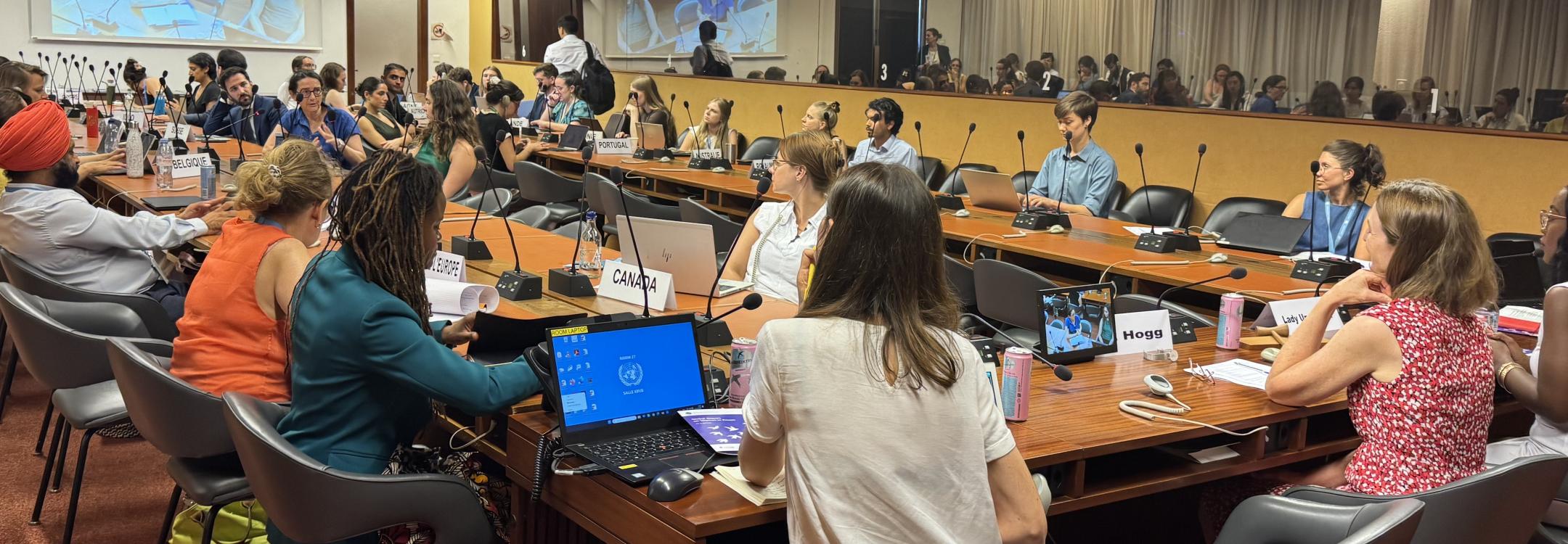
Across regions, women deprived of liberty face heightened risks of ill-treatment and gender-based violence, often exacerbated by poor prison conditions, institutional neglect, and intersecting forms of discrimination. Despite accounting for a small proportion of the global prison population, the number of incarcerated women has had a sharp increase since 2000, mostly due to non-violent, poverty or drug-related offences, often tied to structural inequalities and gender-based discrimination.
On 1 July 2025, a powerful side event at the 59th session of the UN Human Rights Council brought together international experts, government representatives, women with lived experience and civil society to address the systemic risks faced by women in detention. Held at the United Nations in Geneva under the title “From Silence to Safety: Addressing Gender-Based Violence and Systemic Risks Facing Women in Detention”, the event underscored the urgency of transforming criminal justice systems to reduce women’s imprisonment and better protect their rights and dignity.
Co-organised by the Association for the Prevention of Torture (APT), the Office of the High Commissioner for Human Rights (OHCHR) and the Permanent Mission of Canada to the United Nations in Geneva, the event explored findings from two new landmark reports: OHCHR’s thematic report on gender-based violence against women and girls in criminal justice detention, and APT’s latest global report on women in prison.
Both reports reveal a disturbing prevalence of gender-based violence in detention, including violence by staff and other detainees, harmful detention practices, discrimination, poor hygiene, and lack of access to sexual and reproductive health and rights and to mental health care. Drawing from global evidence, the reports show that pretrial detention is overused, while non-custodial alternatives and reintegration programs are often inaccessible, under-funded, or not adapted to women’s experiences. Both reports also highlight promising practices implemented in different countries.
Among the factors exacerbating gender-based violence in detention, OHCHR report highlights the inadequate access to justice. “Women experience barriers in challenging the reasons for which they are incarcerated, reporting cases of gender-based violence in detention, or accessing legal aid, due to their economic situation”, said Stefania Tripodi, Team Leader at OHCHR Gender-Based Violence Cluster. The report therefore urges States to guarantee access to financial assistance and free or low-cost, high quality legal aid.
Veronica Filippeschi, APT Senior Adviser on Vulnerabilities, reflected on the high risk of ill-treatment that women face while in prison. “Findings from our Global Report on Women in Prison from 46 countries show routine, humiliating and invasive body searches, excessive use of isolation as a punitive response to conflict and behavioural issues or handcuffs during pregnancy and childbirth. Discrimination is compounding—women who are pregnant, LGBTIQ+, women with disabilities, foreigners, older, indigenous, or from different ethnic and racial backgrounds, face heightened abuse and neglect”, she said.
In her opening remarks, Patricia McCullagh, Deputy Permanent Representative of Canada to the United Nations in Geneva, reaffirmed Canada’s commitment to gender-responsive and trauma-informed criminal justice reform, noting that “the situation of human rights for women and girls detained in criminal justice facilities remains deeply concerning. […] It’s often women and girls in situations of marginalization and vulnerability who end up in prison”.
The event highlighted the crucial role of women with lived experience in shaping gender-responsive and trauma-informed criminal justice systems. Their meaningful engagement is key to understand the criminal justice system’s flaws, design and implement adequate laws, policies and services that address women’s specific needs.
Lady Unchained, poet and founder of the UK-based organisation Becoming Unchained, shared her lived experience of the criminal justice system and reflected on the importance of reintegration and trauma-informed support. “I met women who had mental health issues. I met women who had children. I met grandmothers. All of these women could have been treated way better in the community if the right support was there”, she said.
The discussions highlighted women’s specific characteristics and pathways to imprisonment. “More than half of women in prison in the country are deprived of liberty for offences under the drug law. Most women in prison have a history of violence and sexual abuse. They are mothers, indigenous and foreigners with no criminal record and of rural origin”, said Luis Vial, expert of the Committee for the Prevention of Torture, the Chilean National Preventive Mechanism established under the Optional Protocol to the UN Convention against Torture.
Through its regular visits to places of deprivation of liberty, the Committee has reported the concerning situation of pregnant women and women with their young children in prison and recommended measures to reduce their incarceration. As a result, there has been progressive development of national jurisprudence allowing the substitution of sentences and raising the standards for women in prison. A bill is also been discussed at the National Congress, allowing pregnant women and women with young children to serve pre-trial detention under house arrest.
The event marked the 15th anniversary of the United Nations Bangkok Rules – the first international framework addressing the specific needs of women in criminal justice systems. As Nicole Hogg, APT’s Secretary General, stated, “it is timely to celebrate the progress made so far, reflect on the remaining challenges and renew our commitment to bring about change in the way women are treated by the criminal justice system”.
